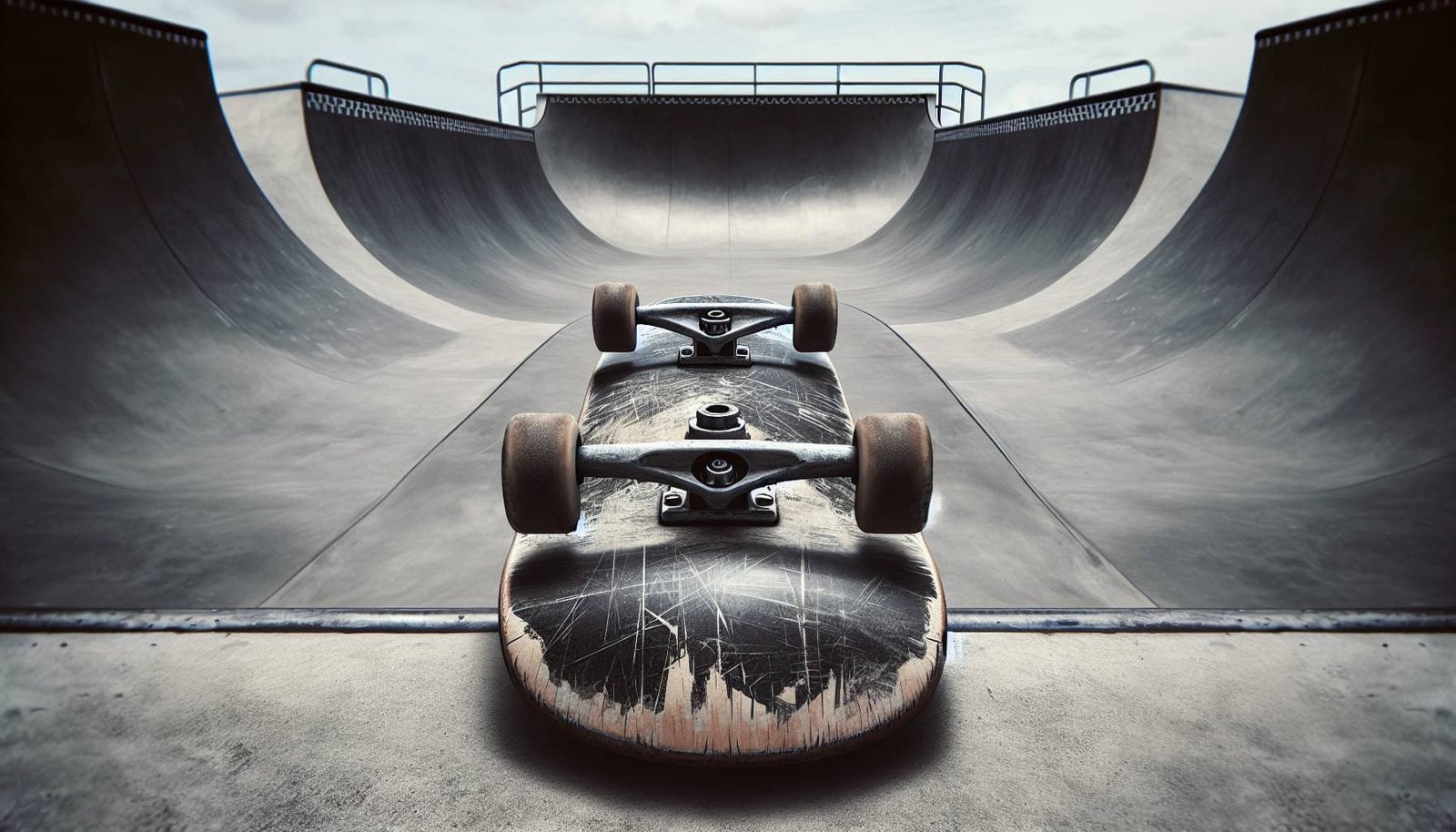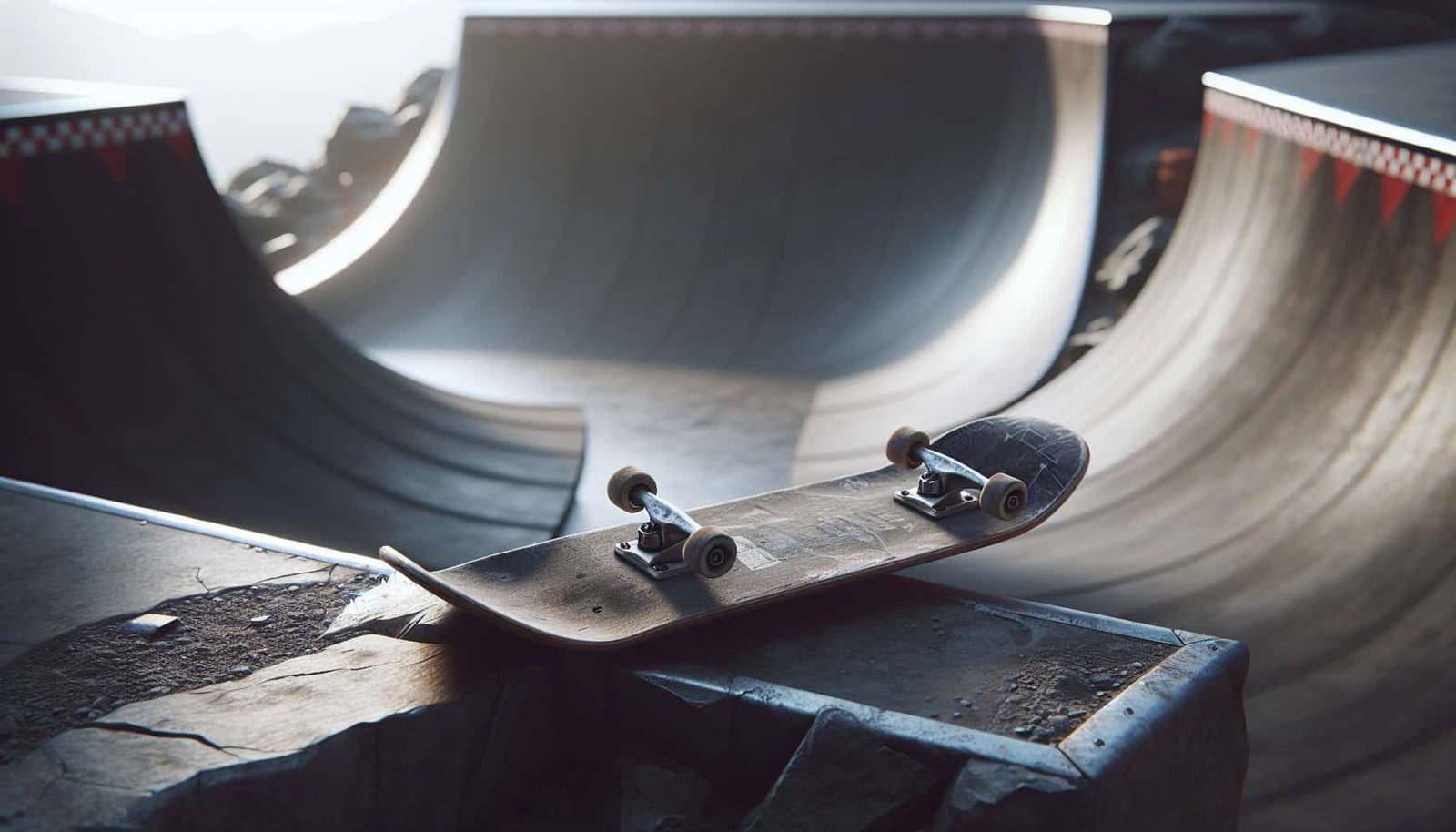If you’re an avid skateboarder, you’ve probably experienced those frustrating plateaus at some point in your skating journey. You know, that endless feeling of being stuck, where it feels like no matter how hard you try, you just can’t seem to progress. But fear not! In this article, we’ll explore the secrets to overcoming plateaus and achieving continuous growth in your skateboarding skills. From mindset shifts to effective practice techniques, you’ll discover the key ingredients that will help you push through those obstacles and keep advancing in your skateboarding journey. So get ready to kickflip your way to new heights!
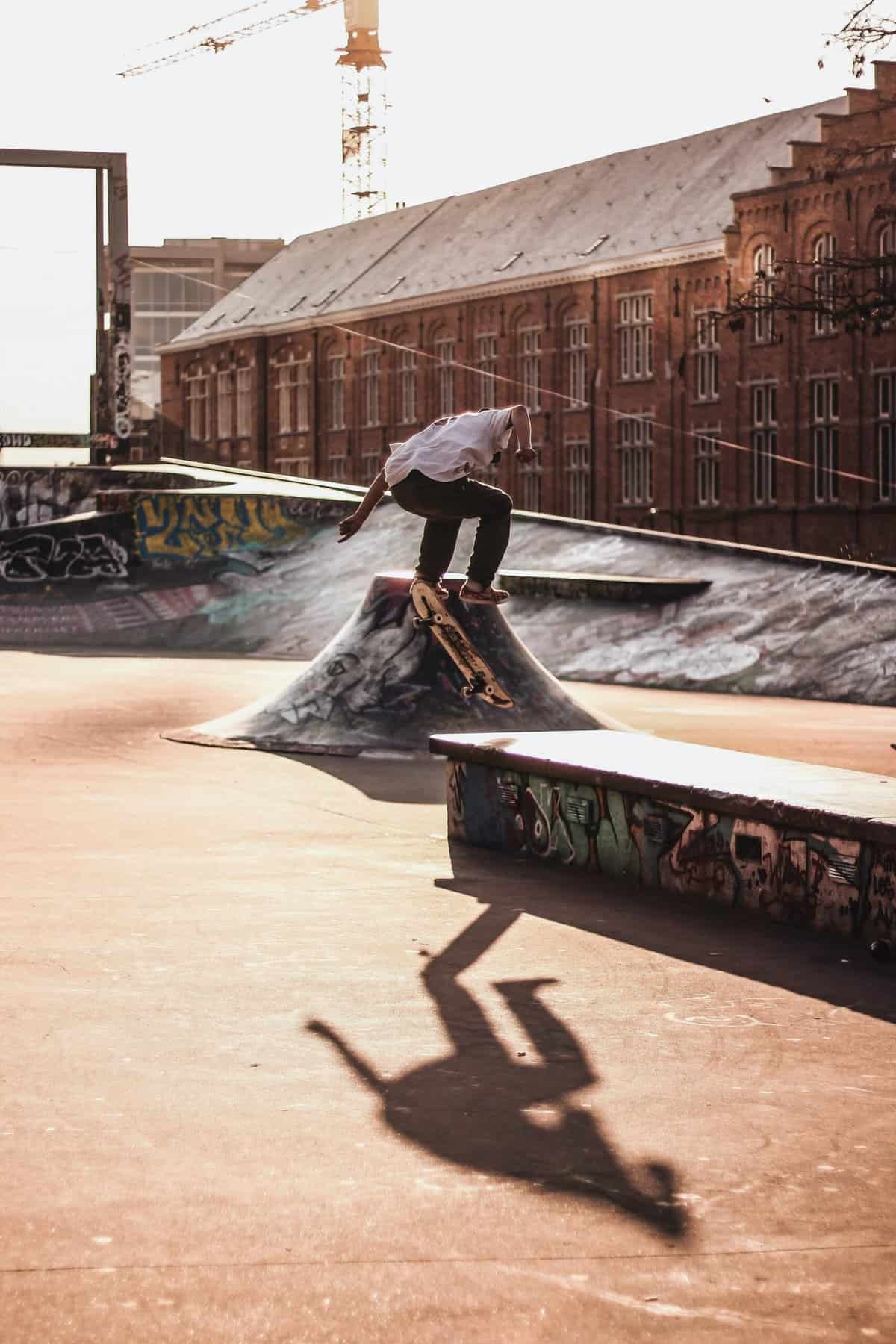
1. Set Clear Goals
Setting clear goals is crucial to improving your skateboarding skills and overcoming plateaus. Start by defining what you want to achieve in skateboarding. Do you want to learn new tricks, improve your balance, or become more flexible? By clarifying your goals, you can create a roadmap for your progression and stay motivated throughout your skateboarding journey.
2. Break Down Your Goals
Breaking down your goals into smaller, manageable tasks is a powerful technique to prevent feeling overwhelmed and maintain your focus. This process can be done using two effective strategies: chunking and the SMART method.
2.1 Chunking
Chunking involves dividing your larger goals into smaller, actionable steps. For example, if your goal is to learn a specific trick, break it down into smaller components such as foot placement, body positioning, and timing. By focusing on these individual elements, you can gradually master each aspect of the trick and eventually put them all together.
2.2 Use SMART Method
The SMART method is another helpful tool for goal-setting. This acronym stands for Specific, Measurable, Attainable, Relevant, and Time-bound. When setting goals, make them specific and well-defined. Ensure they are measurable so that you can track your progress. Make sure they are attainable and relevant to your skill level and overall objectives. Lastly, set deadlines to create a sense of urgency and hold yourself accountable.
3. Practice Consistently
Consistent practice is fundamental to improving your skateboarding skills. It’s important to create a routine that allows you to practice regularly and make progress over time. Here are some tips to incorporate consistent practice into your schedule:
3.1 Regularly Schedule Practice Sessions
Set aside dedicated time for skateboarding in your weekly schedule. Treat it as a priority and commit to showing up for your practice sessions. Consistency is key, so aim for at least a few practice sessions per week.
3.2 Start with Basics and Progress Gradually
When practicing, start with the basics and gradually progress to more advanced techniques. Building a strong foundation is essential for long-term growth. Focus on perfecting the fundamental skills, such as riding, turning, and stopping, before moving on to more complex tricks. By mastering the basics, you’ll develop a solid skill set that will serve as a strong platform for further progression.
4. Strengthen Your Core
A strong and stable core is essential for maintaining balance and executing tricks with precision. Incorporating core strengthening exercises into your training routine can significantly improve your skateboarding skills. Here’s why core strength is important and some recommended exercises to enhance it:
4.1 Importance of Core Strength
The core muscles, including the abdominals, back, and hips, play a critical role in skateboarding. They provide stability and support for your body, helping you maintain balance and control over the skateboard. By strengthening your core, you’ll enhance your overall stability and maneuverability on the board.
4.2 Recommended Exercises
To strengthen your core, consider incorporating exercises such as planks, Russian twists, and bicycle crunches into your workout routine. These exercises target the different core muscles and can be done at home or in a gym setting. Additionally, practicing balance exercises, such as standing on a wobble board or using a balance trainer, can further improve your core strength and stability.
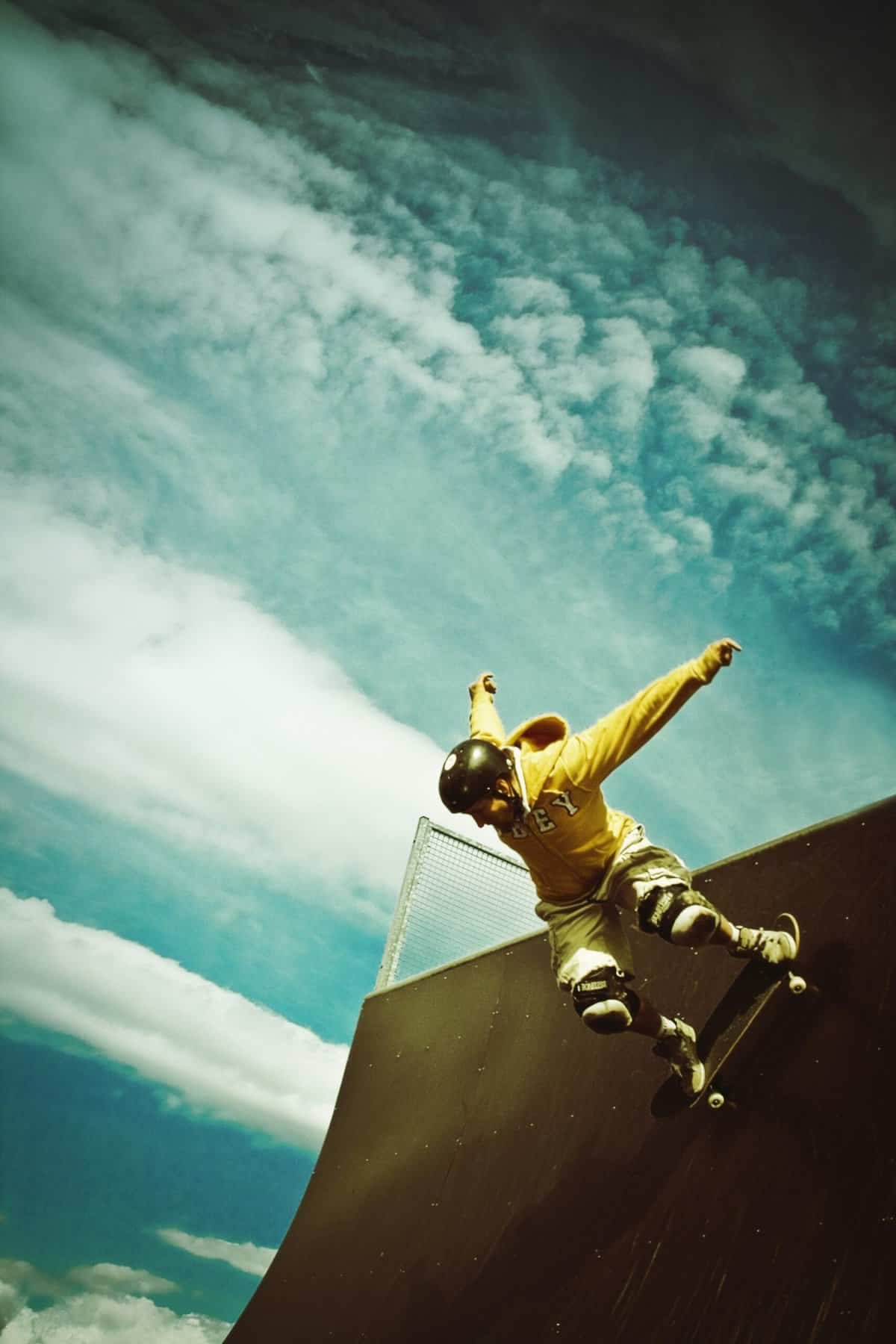
5. Focus on Balance and Stability
Balance and stability are essential skills for any skateboarder. Developing these skills will not only improve your overall performance but also help you overcome plateaus. Here’s how you can enhance your balance and stability on a skateboard:
5.1 Developing Balance
Improving your balance starts with practicing basic techniques, such as standing on one leg and maintaining your balance for extended periods. As you become more confident, progress to dynamic exercises like riding on curbs or narrow ledges. These exercises challenge your balance and force you to adapt to different surfaces.
5.2 Improving Stability
Stability can be enhanced by incorporating exercises that target your leg muscles, such as squats, lunges, and calf raises. Strengthening these muscles will provide a solid base of support when performing tricks and maneuvers. Additionally, practicing stability-focused exercises on a balance board or a skateboard balance trainer can further enhance your stability skills.
6. Work on Flexibility
Flexibility plays a significant role in skateboarding, as it allows for greater freedom of movement and reduces the risk of injuries. Incorporating stretching exercises into your routine can improve your flexibility and help you advance in your skateboarding skills. Here are some stretching techniques to consider:
6.1 Stretching Exercises for Skateboarding
Warm up your muscles before stretching by performing light cardio exercises such as jogging or jumping jacks. Once warmed up, focus on stretching the major muscle groups used in skateboarding, including the legs, hips, and upper body. Try incorporating exercises like lunging hip stretches, butterfly stretches, and shoulder rolls into your routine. Hold each stretch for 15-30 seconds, focusing on deep breathing to relax the muscles.
6.2 Include Yoga or Pilates in Your Routine
Practicing yoga or Pilates can provide numerous benefits for skateboarders. These disciplines improve flexibility, core strength, and body awareness. Consider adding a yoga or Pilates class to your weekly schedule to enhance your overall performance and prevent injuries. Additionally, these practices promote mental focus and can contribute to a positive mindset, which is vital for overcoming plateaus and staying motivated.

7. Analyze and Correct Technique
Analyzing your technique and seeking feedback from experienced skateboarders is a valuable way to identify areas for improvement and overcome plateaus. Here are two effective strategies to help you assess and refine your skateboarding technique:
7.1 Filming Yourself
Filming your skateboarding sessions allows you to review your movements and identify any flaws or areas that need improvement. Set up a camera or ask a friend to record your practice sessions. Take the time to review the footage afterward, paying attention to your body positioning, foot placement, and overall execution of tricks. By observing yourself objectively, you can pinpoint areas to focus on and make necessary adjustments.
7.2 Seek Feedback from Experienced Skateboarders
Receiving feedback from experienced skateboarders can provide invaluable insights into your technique. Reach out to local skateboarding communities, join online forums, or participate in skateboarding clinics to connect with more experienced riders. Seek guidance and ask for constructive criticism on your skateboarding skills. Embrace feedback as an opportunity to grow and make adjustments to your technique, ultimately helping you overcome plateaus and continue advancing in your skateboarding journey.
8. Push Your Limits
To advance in your skateboarding skills, you need to step out of your comfort zone and continuously push your limits. By challenging yourself and trying new tricks or techniques, you’ll keep your progression moving forward. Here’s how you can push your limits and break through plateaus:
8.1 Try New Tricks
Don’t be afraid to try new tricks that seem challenging or daunting. Start by learning variations of tricks you already know, gradually progressing to more difficult ones. Experiment with different grab variations, spins, or flips to expand your repertoire. Embrace the learning process and be patient with yourself. Remember, it’s okay to fail and fall – it’s all part of the journey towards improvement.
8.2 Pushing Yourself Out of Comfort Zone
Pushing yourself out of your comfort zone can be uncomfortable, but it’s an essential step for growth. Try riding on different terrain, such as ramps, bowls, or skateparks, to expose yourself to new challenges. Skate with others who have different skill levels to learn from their techniques and be inspired by their progression. Gradually increase the speed and difficulty of your tricks, always striving to surpass your previous achievements. By consistently pushing your limits, you’ll continue to evolve as a skateboarder and overcome plateaus.
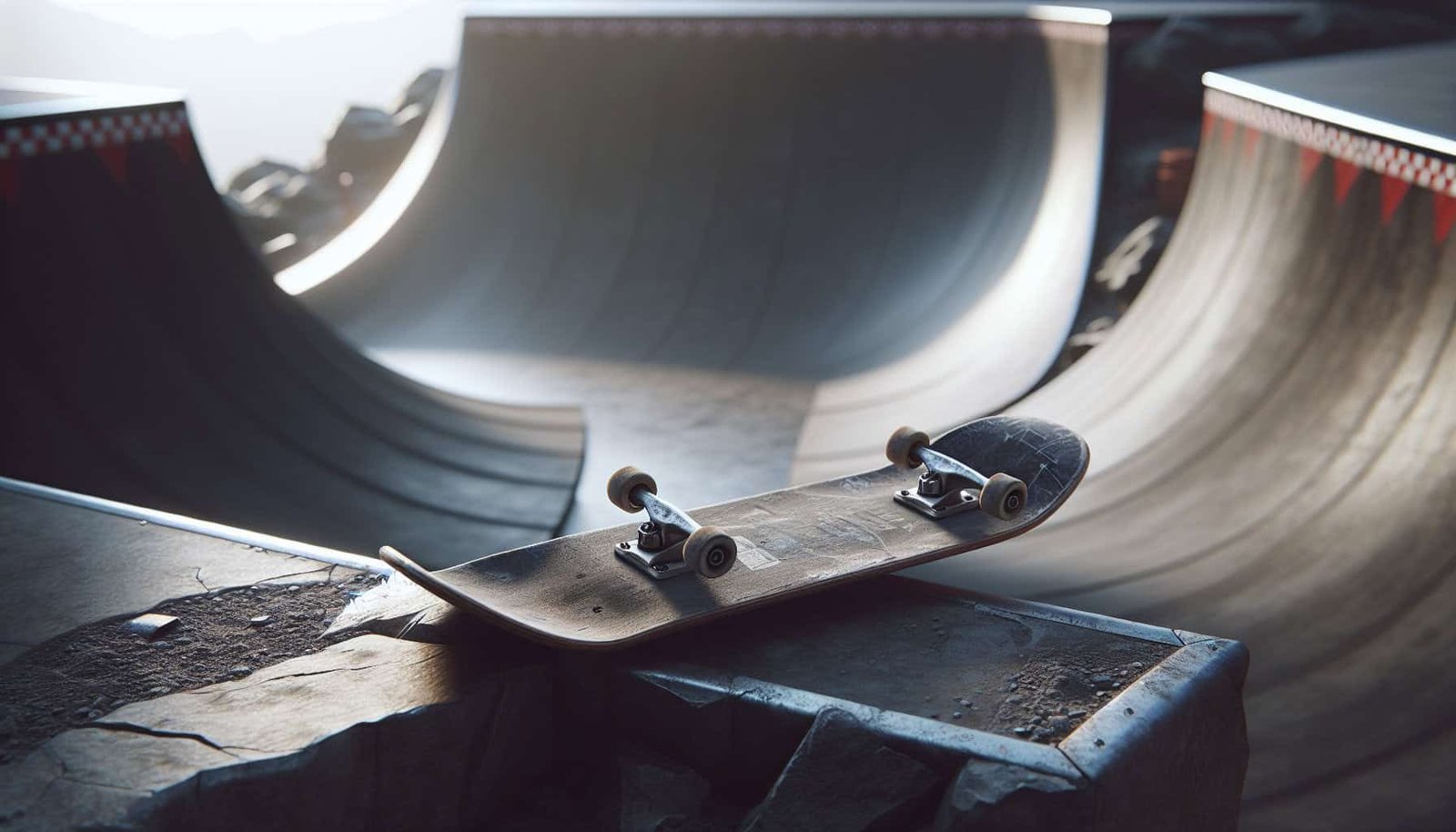
9. Find a Skateboarding Community
Being part of a supportive skateboarding community can greatly enhance your progression and motivate you to keep advancing. Surrounding yourself with like-minded individuals who share your passion can provide valuable insights, advice, and encouragement. Here’s how you can find and engage with a skateboarding community:
9.1 Join Skating Groups or Clubs
Look for local skateboarding groups or clubs in your area and consider joining them. These organizations often host events, group lessons, and skateboarding sessions, providing an opportunity to connect with fellow skateboarders. Being part of a group allows you to learn from others, share experiences, and receive guidance from more experienced riders. It’s also a great way to stay motivated and inspired by witnessing the progression of your peers.
9.2 Attend Skateboarding Events
Keep an eye out for skateboarding events happening in your area, such as competitions, demos, or skateboarding festivals. Attending these events not only exposes you to the skateboarding culture but also allows you to witness the skills and techniques of professional or skilled skateboarders. Soak up the energy of the event and engage with fellow attendees to expand your network and connect with the larger skateboarding community.
10. Maintain a Positive Mindset
Maintaining a positive mindset is crucial for overcoming plateaus and staying motivated in your skateboarding journey. Embrace failures as opportunities for growth, and keep a determined and motivated outlook. Here are two key strategies to help you maintain a positive mindset:
10.1 Embrace Failures and Learn from Them
Failing is an integral part of the learning process. Embrace failures as valuable learning experiences rather than setbacks. Each time you fall or struggle with a trick, analyze what went wrong and make adjustments accordingly. Learn from your mistakes, and remember that every failure brings you one step closer to success. Be patient with yourself and celebrate even the smallest signs of progress.
10.2 Stay Determined and Motivated
Skateboarding can be challenging and frustrating at times, but it’s important to stay determined and motivated. Remind yourself of the reasons why you started skateboarding and the goals you’ve set for yourself. Surround yourself with positive influences and inspirational content, such as skateboarding videos or magazines, to fuel your passion. Visualize your success and believe in your ability to overcome plateaus. With a resilient mindset, you’ll continue to advance and achieve new heights in your skateboarding skills.
By following these strategies and incorporating them into your skateboarding routine, you can overcome plateaus and continue advancing in your skateboarding skills. Remember to set clear goals, break them down into actionable steps, practice consistently, strengthen your core, focus on balance and stability, work on flexibility, analyze and correct your technique, push your limits, find a skateboarding community, and maintain a positive mindset. Enjoy the journey and celebrate every milestone along the way, as skateboarding is not only about the destination but also about the progress and growth you experience as a skateboarder.
